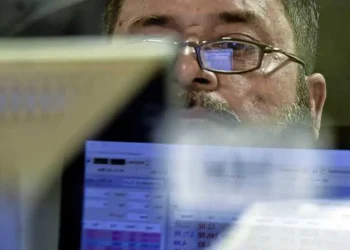
Australian shares ended lower on Wednesday, tracking losses on Wall Street, ahead of crucial U.S. inflation figures that may influence the Federal Reserve’s next rate decision, while local jobs data was also in focus.
The S&P/ASX 200 index ended 0.5% lower at 8,353.6 points, its lowest close since Nov. 26. The benchmark declined for a second consecutive session.
“Today’s decline followed a cautious trading session on Wall Street overnight, where investors moved to the sidelines ahead of critical U.S. inflation report,” said Tony Sycamore, market analyst at IG.
U.S. inflation data is expected later in the day and is one of the last major economic reports before the Fed’s monetary policy meeting next week.
Investors’ attention is also on Australian jobs data, scheduled for Thursday, which will provide more clarity on when the Reserve Bank of Australia (RBA) is expected to cut interest rates. The RBA is scheduled to meet next in mid-February.
The RBA kept rates unchanged at 4.35% on Tuesday, but softened its hawkish stance.
Australian shares slip as financials, tech counter miners’ gains; RBA decision in focus
A weaker-than-expected employment report will strengthen the case for a first RBA rate cut in February, Sycamore said.
“Market sentiment today is already leaning towards this possibility, with current pricing indicating a 63% probability of a February rate cut, up from 54% on Tuesday.”
Financials ended 0.6% lower and was the top drag on the benchmark index, with the “Big Four” banks ending lower between 0.1% and 1.3%.
Energy stocks were down 1% at close. Woodside Energy and Santos ended the session 0.8% and 1.4% lower.
Miners shed 0.4% the back of retreating iron-ore prices. While Rio Tinto and Fortescue lost 1.2% and 1.7%, respectively, BHP Group ended 0.4%
higher.
Technology stocks closed 1.4% lower, tracking their Wall Street peers.
New Zealand’s benchmark S&P/NZX 50 index finished the session 0.3% higher at 12,761.19 points, after ending lower in the last three sessions.









 American Dollar Exchange Rate
American Dollar Exchange Rate